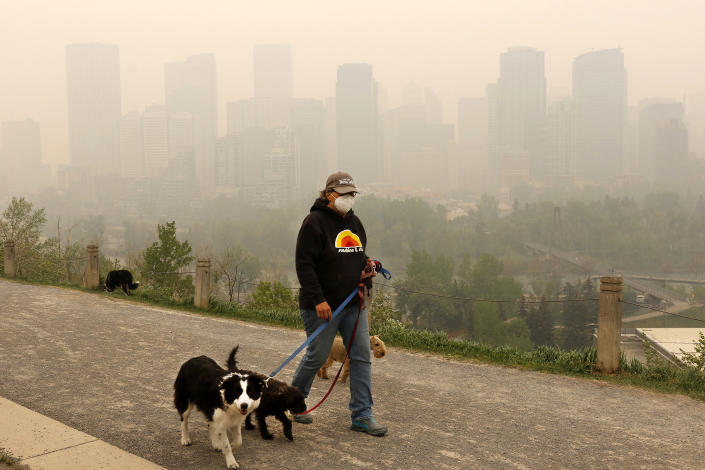Wildfires rip across Canada as heat wave smashes temperature records

Views (134)

High temperature records fell by the dozen this week as western Canada continued to suffer in a prolonged, scorching heat wave.
High temperature records fell by the dozen this week as western Canada continued to suffer in a prolonged, scorching heat wave.
“This is a very unusual pattern. We often don’t see these types of patterns set up this early in the year. We see these patterns in the summer,” said Terri Lang, a warning preparedness meteorologist for Environment and Climate Change Canada.
It can take months for scientists to determine whether a particular weather anomaly is the result of climate change and the heating of the atmosphere by the burning of fossil fuels. But Lang said the events fit with what climate scientists have predicted for western Canada.
“It is consistent with what the science of climate change is telling us — that the climate’s warming, that temperatures are getting warmer and drier early on in the year and that warming temperatures lead to more forest fires,” she said.
The “omega block” pattern was established in late April and early May, Lang said. The pattern — a massive block of high pressure that resembles the Greek letter it is named for — has continued to sit over the region for weeks, sending temperatures soaring into record-breaking territory in early May.
Daily temperature records have been broken with regularity in Alberta and other provinces since the beginning of the month.
“Last weekend was definitely anomalous, especially for May,” said Kayla Mazurkiewicz, a meteorologist at the National Weather Service in Seattle, who noted that the high pressure system has remained centered over western Canada. “That pattern was directly over that area. That’s why they’ve gotten the brunt of it.”
Nathan Gillett, a research scientist with Environment and Climate Change Canada who contributed to that research, said what’s happening this month is an “extreme event” but less so in comparison to 2021. Gillett said researchers were considering a new, detailed climate attribution study of the recent heat wave.
“The risk of these kinds of heat waves everywhere has been induced by human-caused climate change,” Gillett said.
The wildfires could affect global energy prices. Wildfires forced some Canadian shale operators to halt work this month, according to Rystad Energy, an independent energy research firm. Rystad estimated that at least 240,000 barrels of oil could not be pumped each day because of outages. Production of 2.7 million barrels of oil each day is within areas in “very high” or “extreme” wildfire danger rating zones, according to a special market update from company Vice President Thomas Liles.
The fires are causing air quality problems. In Calgary on Wednesday, the air quality was rated 10+, meaning it topped the risk scale used by Canadian authorities.
In the meantime, the heat was scrambling ecosystems in other areas of Canada. In British Columbia, the warmth prompted a rapid melt-out of mountain snow. That left officials dealing with flood and fire evacuations at the same time.
The weather is predicted to remain hot and dry in long-term forecasts, Lang and Gillett said.
“We don’t see an end in sight,” Lang said.
0 Likes
